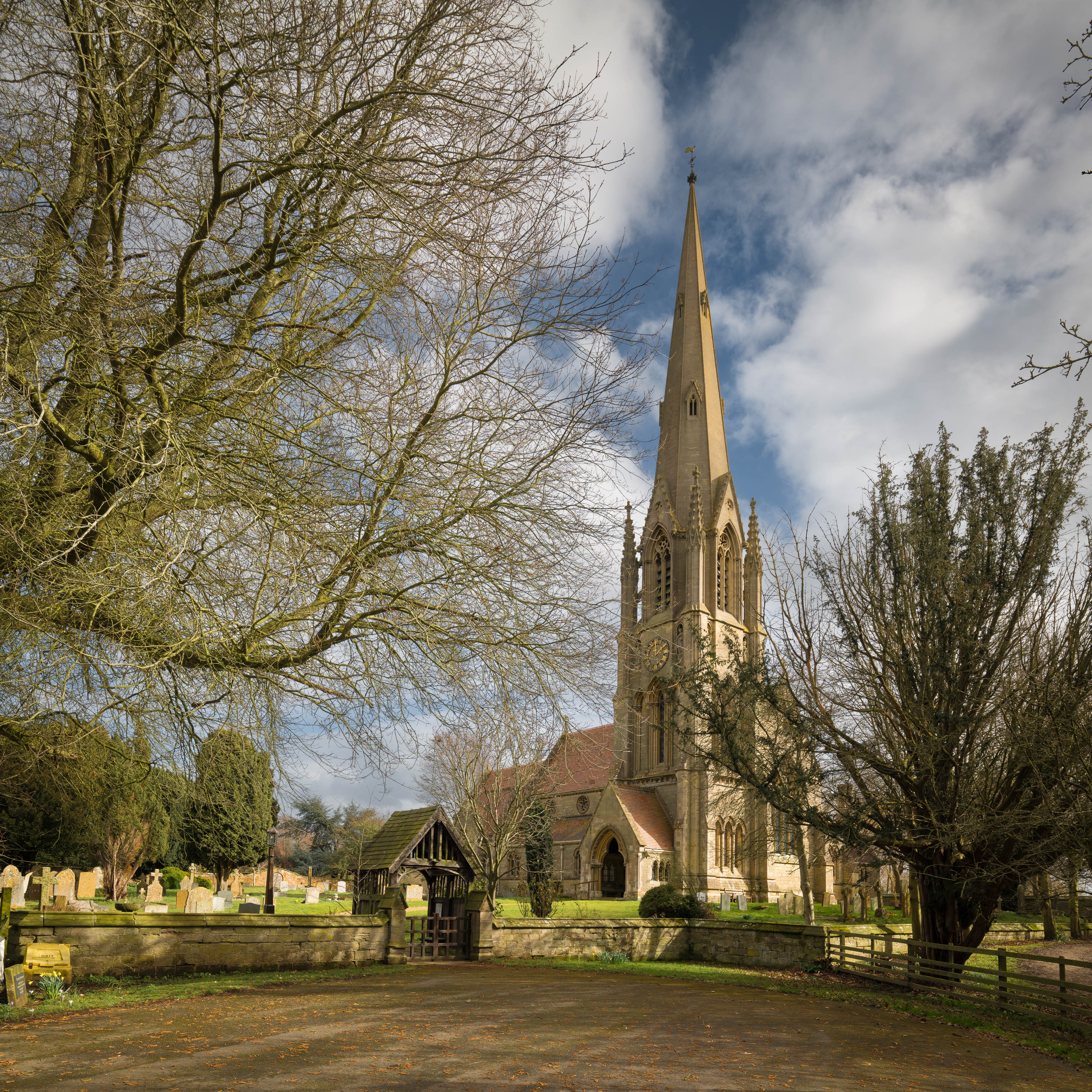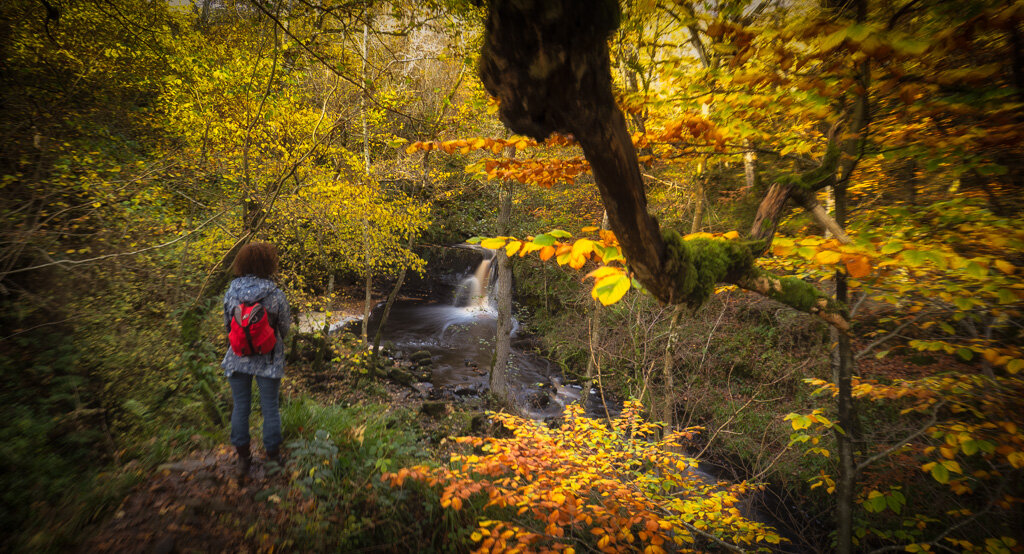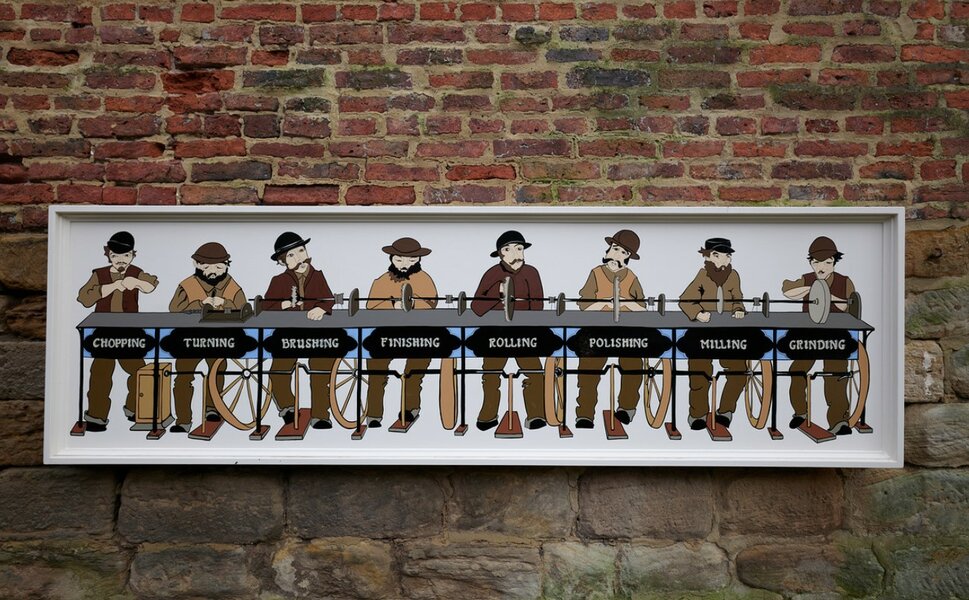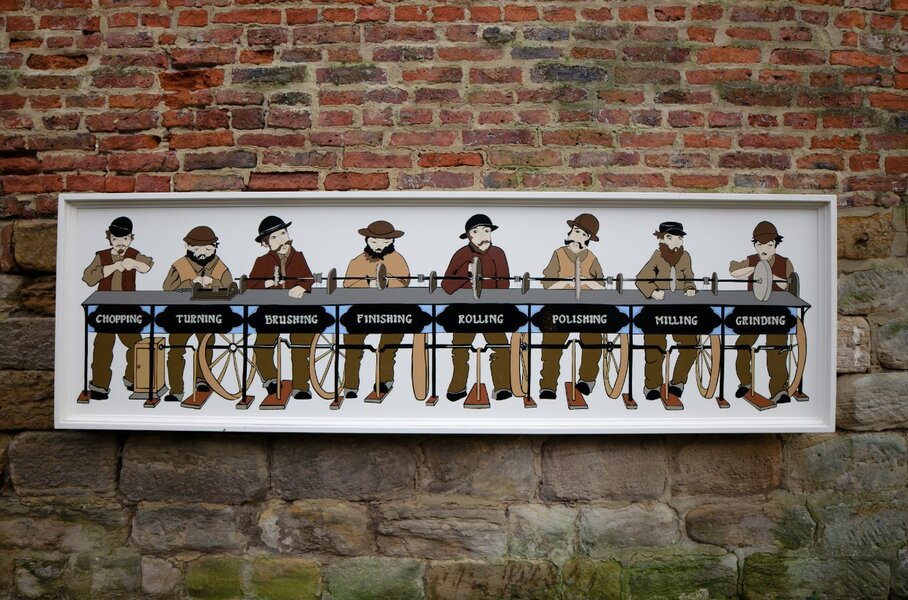L-MOUNT Forum
You are using an out of date browser. It may not display this or other websites correctly.
You should upgrade or use an alternative browser.
You should upgrade or use an alternative browser.
Lumix 14-28 f4-f5.6 Sample Images
- Thread starter pdk42
- Start date
pdk42
Moderator
Panasonic DC-S5
LUMIX S 14-28/F4-5.6
ƒ/11.0 14.0 mm 1/250 ISO 100

Sunset over the Viaduct by Paul Kaye, on Flickr
LUMIX S 14-28/F4-5.6
ƒ/11.0 14.0 mm 1/250 ISO 100

Sunset over the Viaduct by Paul Kaye, on Flickr
pdk42
Moderator
Panasonic DC-S1R
LUMIX S 14-28/F4-5.6
ƒ/8.0 17.0 mm 1/100 ISO 100

The Church at Wasperton by Paul Kaye, on Flickr
LUMIX S 14-28/F4-5.6
ƒ/8.0 17.0 mm 1/100 ISO 100

The Church at Wasperton by Paul Kaye, on Flickr
pdk42
Moderator
Panasonic DC-S1R
LUMIX S 14-28/F4-5.6
ƒ/8.0 17.0 mm 1/125 ISO 100

All Saints Church, Sherbourne, Warwickshire by Paul Kaye, on Flickr
LUMIX S 14-28/F4-5.6
ƒ/8.0 17.0 mm 1/125 ISO 100

All Saints Church, Sherbourne, Warwickshire by Paul Kaye, on Flickr
pdk42
Moderator
Panasonic DC-S1R
LUMIX S 14-28/F4-5.6
ƒ/11.0 14.0 mm 5s ISO 100

Trees at Dawn by Paul Kaye, on Flickr
LUMIX S 14-28/F4-5.6
ƒ/11.0 14.0 mm 5s ISO 100

Trees at Dawn by Paul Kaye, on Flickr
pdk42
Moderator
Panasonic DC-S1R
LUMIX S 14-28/F4-5.6
ƒ/11.0 18.0 mm 2.5s ISO 100

The Waterfall at Inversnaid by Paul Kaye, on Flickr
LUMIX S 14-28/F4-5.6
ƒ/11.0 18.0 mm 2.5s ISO 100

The Waterfall at Inversnaid by Paul Kaye, on Flickr
pdk42
Moderator
Panasonic DC-S1R
LUMIX S 14-28/F4-5.6
ƒ/8.0 18.0 mm 1/250 ISO 100

Sunrise at Luss Beach by Paul Kaye, on Flickr
LUMIX S 14-28/F4-5.6
ƒ/8.0 18.0 mm 1/250 ISO 100

Sunrise at Luss Beach by Paul Kaye, on Flickr
pdk42
Moderator
Panasonic DC-S1R
LUMIX S 14-28/F4-5.6
ƒ/11.0 14.0 mm 8s ISO 100

Waiting for Sunrise by Paul Kaye, on Flickr
LUMIX S 14-28/F4-5.6
ƒ/11.0 14.0 mm 8s ISO 100

Waiting for Sunrise by Paul Kaye, on Flickr
pdk42
Moderator
Panasonic DC-S1R
LUMIX S 14-28/F4-5.6
ƒ/8.0 19.0 mm 1/15 ISO 100

The Church at Luss by Paul Kaye, on Flickr
LUMIX S 14-28/F4-5.6
ƒ/8.0 19.0 mm 1/15 ISO 100

The Church at Luss by Paul Kaye, on Flickr
R-J Sunday
LMF-Patron
That front tree is really popping out of the image which create so much depth. GorgeousPanasonic DC-S1R
LUMIX S 14-28/F4-5.6
ƒ/8.0 17.0 mm 1/100 ISO 100
The Church at Wasperton by Paul Kaye, on Flickr
pdk42
Moderator
I've owned (or used) a lot of UWA zooms over the years and this 14-28 is amongst the best. If you're interested, this is the scorecard:
| Lens | Pros | Cons |
| Canon 17-40 f4 (owned) | It's an "L" lens! | Terrible corners wide open. Still not sharp at f11. |
| Olympus 9-18 f4-f5.6 (owned) | Surprisingly good for its size and cost. Really compact and light. | Corners never fully sharp at any aperture. It uses an extending mechanism, which I don't like. |
| Lumix 7-14 f4 (owned) | Very good sharpness and IQ in general. Small and light. | Terrible purple ghosting on Olympus bodies. Doesn't take filters. |
| Olympus 7-14 f2.8 (used for a day on the Olympus "Test & Wow" programme) | Nice IQ. Really great build. | Big and heavy for m43. Doesn't take filters. |
| Lumix 8-18 f2.8-f4 (owned) | The best m43 UWA in my view. Really nice build. Great IQ. Takes filters. Not too big & heavy. | I can't think of any! |
| Olympus 8-25 f4 (owned, briefly) | My copy was decentered which influenced my view, but reviews say IQ is good. For me it wasn't a good experience. | It uses an extending mechanism, which I don't like. Big when open, esp considering it's m43. |
| Sony/Zeiss 16-35 f4 (owned, during a brief foray into Sony E) | Really nice. Great sunstars. Nice build quality. | A bit big. Extreme corners softened a little, but not a big deal. |
| Nikon Z 14-30 f4 (owned, during an equally brief foray into Nikon Z) | Really nice. Similar IQ to the 14-28 with perhaps slightly worse extreme corners. Nice build quality. | It uses an extending mechanism, which I don't like. |
| Nikon 16-35 f4 G VR (a friend's lens, used for a few hours, and with an FTZ adapter on a Z7) | It's got a gold band on it. | I wasn't impressed with the lens at all. Compared to the Z 14-30 its corners were really poor. And it's big and heavy, esp with the FTZ adapter. |
| Sigma 16-28 f2.8 for L mount (own, trying to sell) | Really nice. Fast max aperture. IQ as good as the 14-28. Great sunstars. | Not weather-sealed and narrower range than 14-28. |
| Lumix 14-28 f4-f5.6 | Really nice. Really good IQ. Very compact and light. Weather sealed. | Build is "adequate" rather than inspiring. I hate the rubber focus & zoom rings that Panasonic use - they are absolute dust magnets. |
Pete_W
LMF-Patron
Thanks for posting Paul. Those are great images.
I've barely used my 14-28mm yet but was doing some test shots in the backyard this afternoon and wasn't all that happy with the results. Edges were not sharp although to be fair, they were just snapshots of random things that were close and the aperture was at its widest, so I wasn't really very scientific with what I was doing.
I think that I will need to perform some better test shots this weekend to make sure I don't have a poor copy.
I've barely used my 14-28mm yet but was doing some test shots in the backyard this afternoon and wasn't all that happy with the results. Edges were not sharp although to be fair, they were just snapshots of random things that were close and the aperture was at its widest, so I wasn't really very scientific with what I was doing.
I think that I will need to perform some better test shots this weekend to make sure I don't have a poor copy.
pdk42
Moderator
Remember that DOF, although much wider than a tele, will still be a factor.Thanks for posting Paul. Those are great images.
I've barely used my 14-28mm yet but was doing some test shots in the backyard this afternoon and wasn't all that happy with the results. Edges were not sharp although to be fair, they were just snapshots of random things that were close and the aperture was at its widest, so I wasn't really very scientific with what I was doing.
I think that I will need to perform some better test shots this weekend to make sure I don't have a poor copy.
Pete_W
LMF-Patron
Remember that DOF, although much wider than a tele, will still be a factor.
Thanks Paul. I will set up the same test I did for the 70-300 which is to shoot a flat surface with some texture from about 6 metres away, camera on a tripod and then try some different focal lengths and apertures.
I am guessing it will be better to shoot JPEGs for the test as DxO PhotoLab (my RAW processor) does not yet support the 14-28mm lens, so the JPEGs should probably have better in-camera correction.
pdk42
Moderator
I don't know how DxO do their corrections. In principle, they should not need to do anything for L-mount since the lens distortion profile in embedded in the exif of the raw file. Lightroom quite happily does the corrections and there has been no update since the lens was released.Thanks Paul. I will set up the same test I did for the 70-300 which is to shoot a flat surface with some texture from about 6 metres away, camera on a tripod and then try some different focal lengths and apertures.
I am guessing it will be better to shoot JPEGs for the test as DxO PhotoLab (my RAW processor) does not yet support the 14-28mm lens, so the JPEGs should probably have better in-camera correction.
But if all you're doing is checking sharpness, then JPEGs out of camera is probably the safer bet.
pdk42
Moderator
One from today. It's totally uncropped - so the corners are the corners (if you see what I mean!):

Padley Gorge by Paul Kaye, on Flickr

Padley Gorge by Paul Kaye, on Flickr
pdk42
Moderator
No, it was on a tripod. One thing to watch with UWA lenses is that the IBIS can seemingly do amazing things allowing you to shoot very low shutter speeds - but if there's even the slightest skew then IBIS will try to correct by swiveling the sensor along its long axis (parallel to the body). That will almost certainly throw the focus plane off at the edges, resulting in very blurred sides. Here's a great example from the EM1.3 with the Olympus 9-18. The centre is dead sharp, but don't even look at the edges! 3s hand-held.Thanks Paul. That's an impressive shot and I'd be well pleased if my copy of the lens is that sharp across the frame.
Was that shot hand-held?

- OLYMPUS CORPORATION - E-M1MarkIII
- OLYMPUS M.9-18mm F4.0-5.6
- 9.0 mm
- ƒ/5.6
- 3 sec
- Pattern
- Manual exposure
- ISO 100
Pete_W
LMF-Patron
Thanks Paul. That's helpful to know.
I've just done some test shots in the backyard. I shot photos at two focal lengths, 14mm and 28mm and at three apertures: minimum f4/f5.6, f8 and f11. All were shot from a tripod, and I took shots with IBIS on and off.
Compared with my backyard test of the 70-300mm, this was more difficult as 14mm captures a lot the scene and therefore it's difficult to get a flat plane across the frame unless you are very close. I will try to get out in the field to take some more test shots if the weather allows today (very wet weekend here).
Anyway, with what I've seen so far I think my lens is fine. At 14mm and f4 the corners are not as sharp as the centre but still acceptable, and they are better at f8. At 28mm the lens performs very well at any aperture. So I think this lens is a keeper.
Regarding the lack of support for this lens in DxO, I've worked out that the software doesn't automatically correct for distortion if there is no module installed for it. I downloaded one of the DPR test shots in RW2 (this one) and then opened it in DxO. The attached shots are just screenshots, one from DPR and the other from DxO. You can see the barrel distortion in the DxO image.
I found the manual distortion slider in DxO (never had to use it before!) and was able manually correct it using a grid overlay so if they don't support this lens for a while I will at least be able to make my own corrections manually.
I've just done some test shots in the backyard. I shot photos at two focal lengths, 14mm and 28mm and at three apertures: minimum f4/f5.6, f8 and f11. All were shot from a tripod, and I took shots with IBIS on and off.
Compared with my backyard test of the 70-300mm, this was more difficult as 14mm captures a lot the scene and therefore it's difficult to get a flat plane across the frame unless you are very close. I will try to get out in the field to take some more test shots if the weather allows today (very wet weekend here).
Anyway, with what I've seen so far I think my lens is fine. At 14mm and f4 the corners are not as sharp as the centre but still acceptable, and they are better at f8. At 28mm the lens performs very well at any aperture. So I think this lens is a keeper.
Regarding the lack of support for this lens in DxO, I've worked out that the software doesn't automatically correct for distortion if there is no module installed for it. I downloaded one of the DPR test shots in RW2 (this one) and then opened it in DxO. The attached shots are just screenshots, one from DPR and the other from DxO. You can see the barrel distortion in the DxO image.
I found the manual distortion slider in DxO (never had to use it before!) and was able manually correct it using a grid overlay so if they don't support this lens for a while I will at least be able to make my own corrections manually.
Attachments
pdk42
Moderator
Not sure this helps, but this is the correction data in the EXIF from the 14-28 when shot at 14mm:Thanks Paul. That's helpful to know.
I've just done some test shots in the backyard. I shot photos at two focal lengths, 14mm and 28mm and at three apertures: minimum f4/f5.6, f8 and f11. All were shot from a tripod, and I took shots with IBIS on and off.
Compared with my backyard test of the 70-300mm, this was more difficult as 14mm captures a lot the scene and therefore it's difficult to get a flat plane across the frame unless you are very close. I will try to get out in the field to take some more test shots if the weather allows today (very wet weekend here).
Anyway, with what I've seen so far I think my lens is fine. At 14mm and f4 the corners are not as sharp as the centre but still acceptable, and they are better at f8. At 28mm the lens performs very well at any aperture. So I think this lens is a keeper.
Regarding the lack of support for this lens in DxO, I've worked out that the software doesn't automatically correct for distortion if there is no module installed for it. I downloaded one of the DPR test shots in RW2 (this one) and then opened it in DxO. The attached shots are just screenshots, one from DPR and the other from DxO. You can see the barrel distortion in the DxO image.
I found the manual distortion slider in DxO (never had to use it before!) and was able manually correct it using a grid overlay so if they don't support this lens for a while I will at least be able to make my own corrections manually.
Distortion Param 02 : 0.0159912109375
Distortion Param 04 : 0.014495849609375
Distortion Scale : 1
Distortion Correction : On
Distortion Param 08 : 0.111480712890625
Distortion Param 09 : 0.003021240234375
Distortion Param 11 : -0.025665283203125

